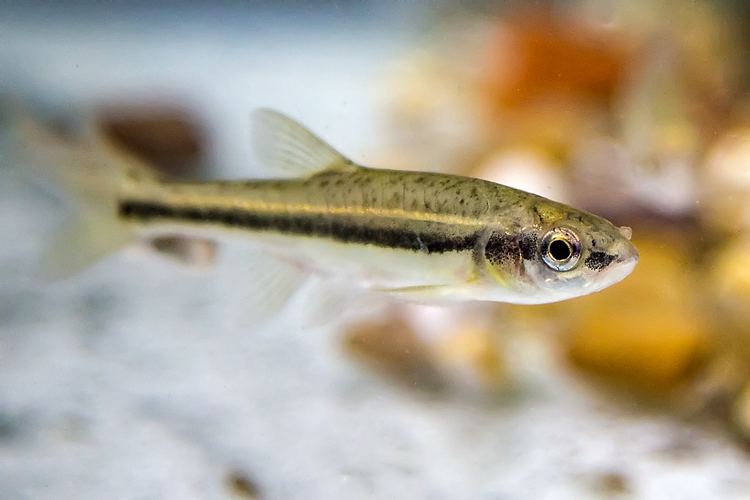Freshwater fish can adapt to higher temperatures; this a study by Libor Závorka, WasserCluster Lunz and his colleagues, University of Glasgow, and Professor Shaun Killen, University of Glasgow revealed. However, this evokes additional challenges for freshwater fish as they form larger brains in warmer waters, but at the same time their ability to explore the environment and thus find food deteriorates.
In order to survive climate change, species whose body temperature depends on the ambient temperature must adapt. Hence, freshwater fish take up more oxygen in warmer waters to stay alive. If the fish lack oxygen, physiological processes such as digestion, activity, growth and reproduction slow down. Scientists have now shown that the physiology and behavior of fish that grow up at higher ambient temperatures changes.
Libor Zavorka, who is researching in the course of a Lise Meitner project at the WasserCluster Lunz, and Prof. Shaun Killen, University of Glasgow, carried out the following behavioral study. One group of juvenile minnows raised in a tank at the usual temperature of 14 degrees Celsius while the other group lived in a water tank at the higher temperature of 20 degrees Celsius. The researchers observed the fish for eight months.
The results demonstrate that the fish need more energy in warmer water. This means that their metabolism and oxygen consumption adapted to the warmer temperatures. Moreover, the fish developed larger brains, but despite larger brains, the minnows achieved significantly worse results in navigation and foraging than the fish in the comparison group that grew in cooler water. This test ran through a labyrinth in which the fish searched for a bloodworm.
Fish need more energy
"Although the fish were able to adapt to the warmer water, their ability to explore the environment and forage was limited. Even though the minnows have larger brains, they managed their daily tasks less well. Thus, the brain did not increase in neuronal density. In addition, the larger brain needs more energy resources. This means that the minnows need more food due to the increased brain mass and metabolic rate, but find it harder to do so," says fish ecologist Libor Závorka.
Further research will show what new challenges freshwater fish will have to face in the future.
The Natural Environment Research Council, the European Research Council and the FWF funded the study.
Contact
Dr. Libor Závorka
-
Libor.zavorka@wcl.ac.at
-
Phone: +43 (0) 7486/20060
- WasserCluster Lunz
- Danube University Krems
More information
Tags
